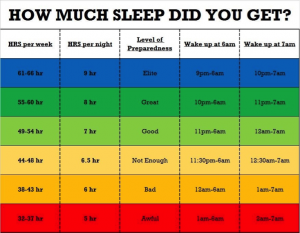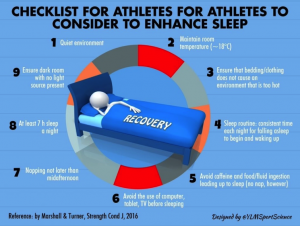
Are you getting enough sleep for optimal recovery?
Sleep is defined as the reversible behavioral state in which an individual is perceptually disengaged from and unresponsive to the environment (Carskadon and Dement, as cited in Halson, 2014). Sleep has many physiological and cognitive functions that may be important to individuals (Halson, 2014). According to Davenne (2009), human performances are highly dependent on the sleep-wake rhythm, while sleep deprivation can have significant effects on performance (Halson, 2014).
The two main phases of sleep cycle include slow wave sleep and rapid eye movement (REM) sleep. Slow wave sleep allows for the reduction of brain activity and synchronization of neuronal activity. In addition, slow wave sleep is important due to the release of growth hormone at the beginning of the night. Rapid eye movement (REM) sleep allows for total relaxation through a disconnect between brain and body. During this phase of sleep, memory consolidation and dreaming occur. It is critical for individuals to cycle through both phases of sleep throughout a night.
Performance may be dependent on both quality and quantity of sleep (Davenne, 2009). Individual patients may encounter many obstacles to normal sleeping patterns including travel, irregular schedules, foreign environments, and high levels of anxiety (Davenne, 2009). Detrimental effects due to sleep deprivation can lead to decline in aerobic and anaerobic processes as well as affecting fatigue and recovery (Davenne, 2009). Detrimental effects of sleep deprivation may affect cognition; pain perception and recovery; immunity and inflammation; and metabolism and endocrine functions (Halson, 2014). Some specific effects of chronic sleep deprivation are listed below.
- Cognition
- Learning and memory deficits
- Decreased efficiency and productivity (Increased lapsing and cognitive slowing)
- Decreased vigilance and attention leading to increased accident risks
- Pain Perception and Recovery
- Enhancement of pain
- Quicker onset and amplification of pain. (Halson, 2008)
- Decreased optimism and sociability (Haack & Mullington, as cited in Halson, 2008)
- Immunity and Inflammation
- Increased risks of illness
- Increased markers of acute inflammation
- Metabolism and Endocrine function
- Increased hunger and appetite, especially in carbohydrate-rich foods
- Increased release of cortisol (catabolic)
- Decreased secretion of anabolic hormones (Insulin-like growth factor and testosterone)
In a study on Stanford basketball players, Mah et al. (2011) found significant improvements after sleep extension for 5-7 weeks. The results of this study indicated significant decrease in mean reaction time and lapses; decreased sprint time; improved shooting accuracy; substantial reduction in daytime sleepiness; and marked improvement in fatigue, vigor, and total mood disturbances. The same researcher also demonstrated improved performance in collegiate swimmers, including improvement in 15-meter sprint, reaction time, turn time, and mood (Mah et al., as cited in Halson, 2014).
Proper sleep is important for consolidation of memory, preparation for new ideas, and proper recovery to prepare individuals for next cycle of wakefulness. Most adults should aim for 7-9 hours of sleep per night to function properly. Individuals should adhere to the following recommendations to improve the quantity and quality they receive.
- Create a quiet, dark, cool (65-68° F) location to optimize your sleep environment
- Standardize bedtime routine and/or daily shut down ritual
- Establish regular sleep schedule
- Avoid caffeine intake 4-5 hours prior to sleep
- Minimize alcohol intake
- Eliminate the use of electronics (especially “blue-light”) prior to sleep
- Allow for spontaneous awakening
- Avoid heavy meals 1 hour prior to bedtime
- Decrease fluid intake 1-2 hours prior to bedtime
- Augment sleep deprivation with a mid-day nap not to exceed 20 minutes
- Other influences that enhance sleep include skin warming, hydrotherapy, breathing techniques, sensory withdrawal, and stretching/muscle relaxation techniques.
Should you need additional information regarding proper sleep habits, please contact MTS Physical Therapy and Wellness for additional details on sleep hygiene or to request a consultation appointment.
References:
- Davenne, D. (2009). Sleep of athletes-problems and possible solutions. Biological Rhythm Research, 40 (1), 45-52.
- Halson, S.L. (2014). Sleep in elite athletes and nutritional interventions to enhance sleep. Sports Med, 44 (Suppl I), S13-S23.
- Halson, S.L. (2008). Nutrition, sleep, and recovery. European Journal of Sport Science, 8 (2), 119-126.
- Mah, C.D., Mah, K.E., Kezirian, E.J., & Dement, W.C. (2011). The effects of sleep extension on the athletic performance of collegiate basketball players. Sleep, 34 (7), 943-950.
Contributor:
J.D. Boudreaux, Ed.D., PT, LAT, ATC, SCS
MTS Physical Therapy & Wellness Youngsville
About MTS Physical Therapy & Wellness (MTS)
MTS Physical Therapy MTS Physical Therapy & Wellness (MTS) is an independently owned physical therapy company serving the Acadiana area since 1983 with now four (4) convenient locations in Lafayette (Dulles & Townhouse), Breaux Bridge and Youngsville. Our goal at MTS is putting you back on the road to leading a better life. With complete physical therapy services, relaxed settings, and supportive and encouraging staff at all locations, we will make it possible for you to get back to living LIFE again!
If pain or restricted movement is keeping you from living life the way you would like to, physical therapy can help. Our professional, licensed physical therapists evaluate muscle, joint, nerve and connective tissue conditions and then develop a custom treatment program that will speed up your recovery and help you achieve your goals.






